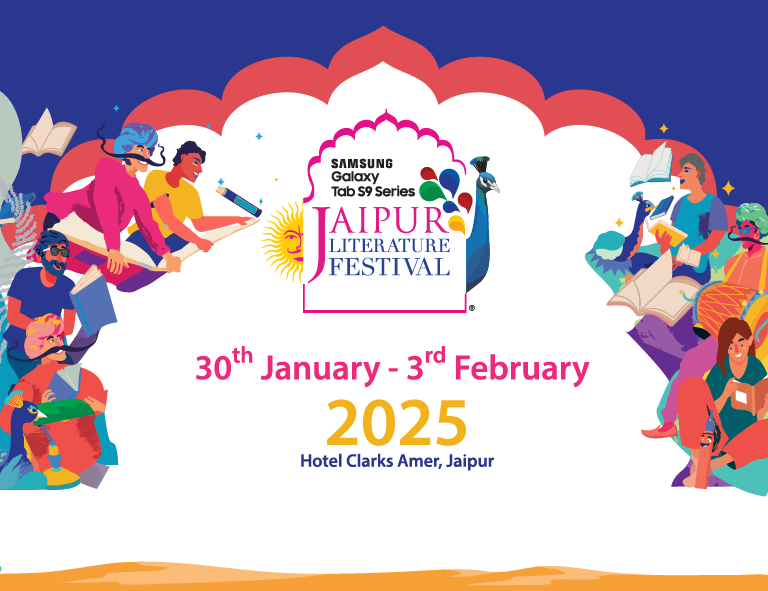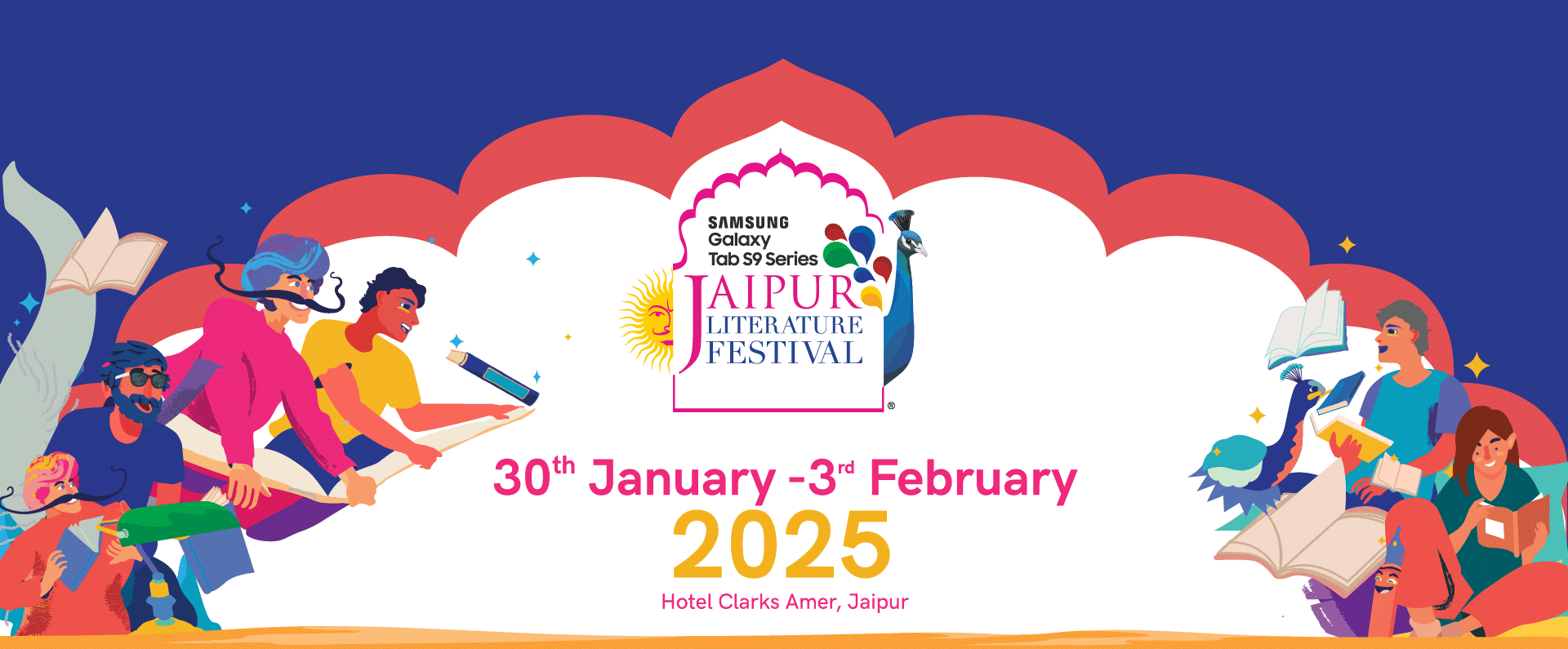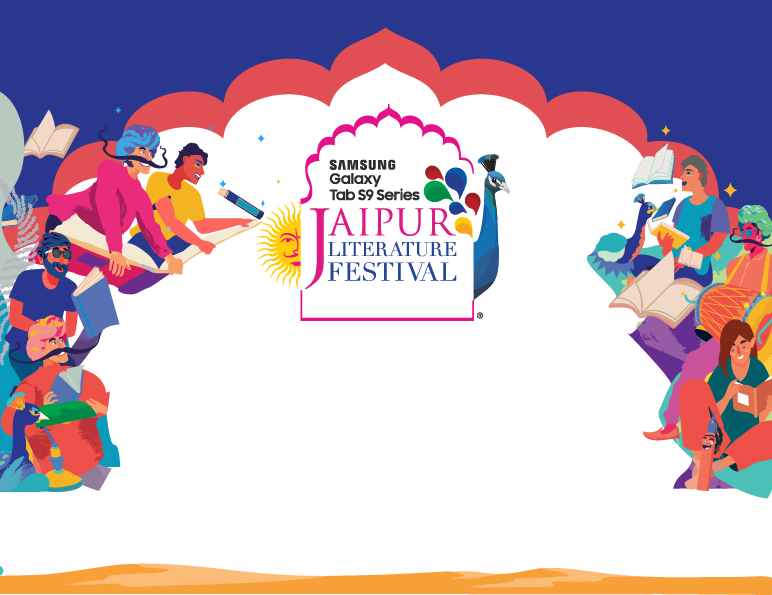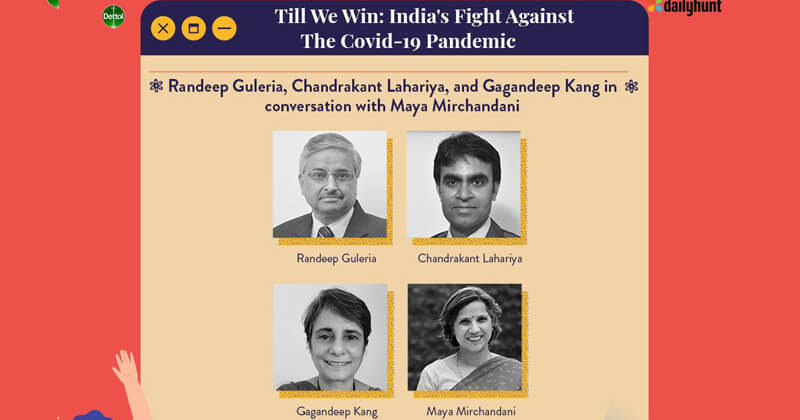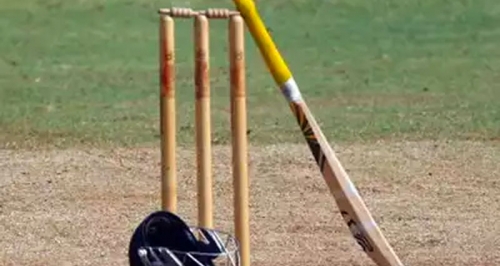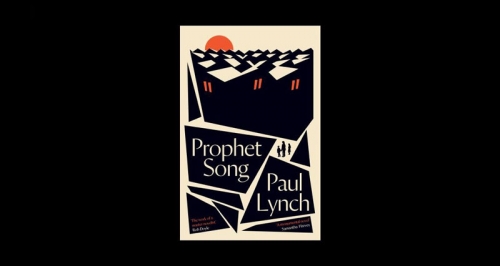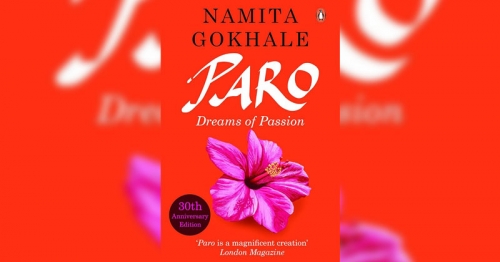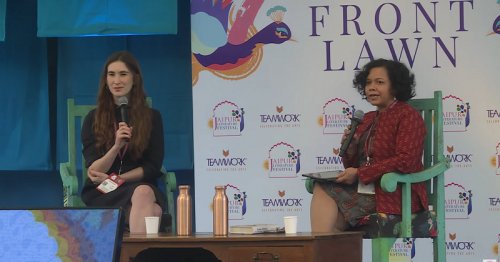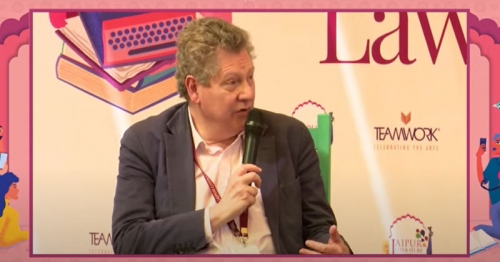Till We Win: India’s Fight Against the Covid-19 Pandemic
Randeep Guleria, Chandrakant Lahariya and Gagandeep Kang in conversation with Maya Mirchandani
A morning session at #JaipurLiteratureFestival2021 with just the right amount of censure, knowledge and caution. ‘Till We Win: India’s Fight Against the Covid-19 Pandemic’ with doctors Randeep Guleria, Chandrakant Lahariya and Gagandeep Kang in conversation with journalist Maya Mirchandani was a much-needed conversation on a book, that three medical virtuosos at the forefront of India’s fight against the global pandemic, have written on their experiences and lessons learnt so far.
As Dr Lahariya, a leading public health expert, said at the beginning, even though all three of them could have written the book individually, it was important for the three to have come together and write this compendium of constantly evolving medical knowhow not just for common people but for all stakeholders, including policy-makers, health professionals and civil society.
Dr Gagandeep Kang, a renowned infectious disease researcher & virologist, reminded us that the medical community’s knowledge about the virus was constantly changing – when they had begun to write the book, their information on the variant strains and vaccine response was very different from what it is now. Hence this is a book, she said, which will need ‘updating’ – much like a work in progress like the global fight against Covid-19, I thought.
Maya then asked Dr Guleria, Director, AIIMS, about the avalanche of digital communication that burst upon social media ever since the pandemic began and spread myth and misinformation which undermined the fact that the only way forward was through clear-cut medical science. Dr Guleria agreed and said there were ‘two pandemics – one was Covid and the other, an infodemic!’ He said the information circulating on social media comprised half-truths and myths perpetrating stigma about vaccines. He recalled that vaccine hesitancy had existed even before the IT era. He spoke of the time in the 18th century when Edward Jenner had developed the pathbreaking smallpox vaccine from the immunity conferred by cowpox – even then paintings had been made which portrayed that by taking the vaccine, body parts of the cow would grow inside the vaccinated! He stressed, however, this kind of ignorance wasn’t particular to India but a global phenomenon and commented on the anti-maskers in the US.
Maya’s next question was to Dr Gagandeep Kang about vaccine hesitancy which the latter said was dangerous and stemmed from inadequate information and people’s unawareness about what a vaccine did. She lauded the government’s communication strategy that had been planned as part of the vaccination process but conveyed that it was yet to be implemented effectively. She explained that the research on the Covid vaccines had not happened overnight; it was founded on the medical community’s decade-plus learning about the SARS and MERS viruses and no step had been bypassed including the large swathes of people used in the trials. The reason the vaccines had progressed so speedily was because money hadn’t been an issue and large numbers of people had volunteered which had enabled huge clinical trials.
Dr Lahariya agreed that vaccine hesitancy was rampant and public health programmes would need to stress on eradicating that as well as on Covid-appropriate behaviour.
Dr Guleria was very succinct when he said that herd immunity was going to be ‘very tough’ to achieve and neither did the latest pan-India sero-prevalence survey indicate 70-80 percent people as immune. He said that with the current mutant strains, the scenario could change and chances of reinfection could remain high as illustrated by Brazil, where it had been erroneously assumed that herd immunity had been achieved till the advent of a much more virulent variant. He pleaded for the public to follow every Covid protocol and ‘not to let our guard down’. He maintained that vaccines too would change, and in future, be able to tackle the mutant strains so that ‘robust immunity’ could be developed. Till then, we needed to remember that vaccines were essential, public health measures must be in keeping with the strategy that maximum numbers needed to be inoculated quickly, of advocating Covid-appropriate behaviour to control flares and most importantly, acting ‘aggressively’ to ensure testing, tracking, isolation and quarantine.
On being asked if people should panic each time a new variant is discovered, Dr Kang said the panic needed to be ‘calibrated’ against our responses to these threats. Viruses will mutate – it is their nature – with each strain, they will become more transmissible – it is their ‘goal to spread themselves’ and not necessarily kill their hosts. The more dangerous and fatal ones are, according to her, those which come from another species – which is why the medical community is particularly worried about bird-flu. She emphasised on the need for caution, the stringent use of masks, responsible behaviour – all of which could lead to a stop in the spread – implementing public health measures such as travel curbs & closures depended on our ability to suppress a virus from spreading.
Dr Kang said, when asked if the private sector should be stakeholders in the vaccination process, that government resources weren’t infinite and the burden needed to be distributed amongst the private sector to accelerate the speed of vaccination. She also added, when asked if India should first export vaccines to other countries, that vaccines had two goals – to save lives and stop the spread of disease. If India’s mortality at this moment was indeed lower than that of many Western nations, it was our duty as ‘global citizens’ to send vaccines out, she felt.
Finally, Dr Guleria cautioned that non-essential travel should continue to be avoided, and in airports and railways stations, masks and sanitisers were especially mandatory. He reminded us that even though research on vaccines was advancing rapidly, a strong antiviral drug was yet to be manufactured. While there has been a decline in mortality since the later part of the last year as doctors have become more adept in handling the deadly coronavirus, a lot more research is still underway.
On being asked if India had done better than others, Dr Lahariya said with a smile that ‘the jury is still out on that one’. He emphasised that this pandemic needed to be a lesson in preparedness as pandemics will come again and it was essential that community response, public health, policy-makers and the people – all remained together in the critical process of learning.
My takeaway was clear - we aren’t out of the woods till Covid is globally eradicated. That is the bottom-line. Till then, caution and precaution are our mainstays because it ain’t over till it’s over!
